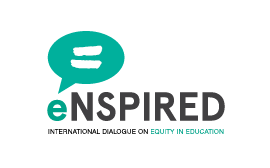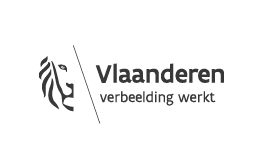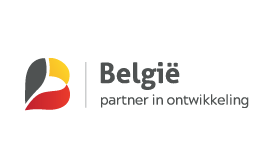-
STEP 1: Define your teaching goals
What would you like to achieve with your audience in applying your international experience?
Would you like to share your eduSHARE with a wide audience, as an inspiration and motivation? Focus on a specific aspect? Use an international context as framework? Work on a specific pedagogical, didactic or international or professional competence? Marking your territory is important.
Therefore verify whether you want…
…to work on pedagogical competences?
Look within the pedagogical competences proposed by the training programme. You can for example start from the 10 Flemish basic competencies:
- The teacher as supervisor of learning and development processes is able to:
- detect the initial situation of the learners and the group;
- select and formulate objectives;
- select the learning contents or learning experiences;
- structure and translate the learning contents or learning experiences into a coherent academic programme;
- determine an adequate methodical approach and form of grouping;
- select, adapt and develop teaching aids as a team;
- create an adequate learning environment taking into account the heterogeneity within the learning group;
- prepare observation or evaluation;
- observe or evaluate the process and product;
- in consultation with the team, execute initiatives to provide special care and integrate them in the care policy of the school;
- supervise the learning and development process in Standard Dutch;
- deal with the diversity of the group.
- The teacher as educator is able to:
- create a positive living environment for the learners within the classroom and at school, together with the team;
- promote learners’ emancipation;
- prepare the learners for personal development and social participation by means of attitude training;
- use current social developments in a pedagogical context;
- adequately deal with learners in socio-emotional problem situations and with learners with behavioural problems;
- stimulate the physical and mental health of the learners;
- communicate with learners of diverse origins in diverse language situations.
- The teacher as contents expert is able to:
- broaden and deepen the basic knowledge of the learning contents, including at least the development goals and attainment targets;
- follow, analyse and process recent developments on contents and skills from the learning or subject domains;
- use the acquired knowledge and skills with respect to learning and subject domains;
- situate the own training programme in the whole of educational opportunities, more in particular the adjacent levels and special education, in view of learner guidance and orientation, and the teacher is aware of the existing forms of integration between mainstream and special education
- The teacher as organiser is able to:
- facilitate a structured working environment;
- create a flexible and efficient class or daily routine, suitable for a short- and long-term planning;
- perform administrative tasks correctly;
- create a stimulating and workable classroom, taking into account the learners’ safety.
- The teacher as innovator/researcher is able to:
- take note of the results of educational research;
- provide innovating elements by constructively questioning the own school culture and training concepts, by reflecting on new social developments and on results of educational research;
- renew his own classroom practice on the basis of continuous training, own experience and creativity;
- question and adjust their own functioning.
- The teacher as partner for the parents or guardians is able to:
- inform themselves of and discretely handle the learner’s data;
- provide parents or guardians with information and advice about their child at school, on the basis of consultation with colleagues;
- provide parents or guardians with information about what happens in the classroom and at school and get them involved, taking into account the parents’ diversity, in consultation with the team;
- discuss education and training issues with parents or guardians;
- communicate with parents with diverse language backgrounds in a variety of language situations.
- The teacher as member of a school team is able to:
- participate in the development of the school curriculum;
- participate in collaboration structures;
- discuss an allocation of tasks within the team and comply with it;
- make his/her own pedagogical and didactical mission and approach discussable within the team;
- find information about their own legal position and that of the learner
- The teacher as partner of external parties is able to:
- establish contacts, communicate and collaborate with external bodies providing education-related initiatives.
- The teacher as member of the education community is able to:
- participate in the public debate on educational issues;
- reflect on the teacher’s profession and his place in society.
- The teacher as culture participant able to:
- distinguish and critically approach current themes and developments in the following areas:
- the socio-political area;
- the socio-economic area;
- the philosophical area;
- the cultural-aesthetical area;
- the cultural-scientific area.
- distinguish and critically approach current themes and developments in the following areas:
… to work on didactical principles?
Go through the various didactical principles once more and verify if you can find some interesting applications or comparisons with respect to didactical principles.
- Principle of sensuousness
For example: in what way attractive teaching material is used at your internship school? Are there huge differences with the Belgian context? - Principle of gradualness
Do you notice huge differences in terms of class structure at your internship school? Is there something interesting to learn from for your own context? - Principle of motivation
Is there a strong focus on motivating the children in the classroom? How is this reflected in the class structure or examples that are used? For example are references being made to the children’s living environment over there? And is that living environment different from the living environment here? - Principle of activity
Do you observe interesting examples of actively dealing with the teaching content at your internship school? For example do children go out more often? Or is it quite the opposite: a more static classroom style? - Principle of differentiation
Are the various levels or fields of interests of the children being considered at your internship school? If there is a huge difference (far less or far more) with the Belgian context, why is that do you think?
… to work on international competencies?
Work with the international competencies promoted by your educational institution. A lot of colleges use the ICOM’s as a basis. Here you can find a summary visualisation of these competencies.
… what are the content goals that you want to achieve?
Determine which contents you want to provide to students or teachers, supported by your international experience.
When all of this is clear you can again make use of the SMART model:
- Specific: What is the specific goal you want to achieve?
- Measurable: How do you verify that you have achieved the goal?
- Achievable: Can you really achieve the goal or is it too difficult?
- Relevant: Is your eduSHARE relevant for other students or teachers within your training programme?
- Timely: When is your deadline for achieving the goal?
- The teacher as supervisor of learning and development processes is able to:
-
STEP 2: Browse through the inspiration database
-
STEP 3: Avoid clichés and stereotypes
-
STEP 4: Use activating working methods
Inspiring and motivating is not a one-way process. Use the international practice as dynamically as possible.
For example by means of:
- inviting, open discussions
- problem solving
- cooperative learning
- asking questions
- working from the perspective of …
- role play
- case study
- corresponding teaching material
-
STEP 5: Focus on reflection and multi-perspectivity
Combine:
- reflection on experience
- reflection on culture, assumptions and beliefs
- self-reflection
Mastering your own context calls for knowledge about:
- historical aspects
- socio-geographical aspects
- existing stereotypes about other cultures
- own experiences and prior knowledge
- own values, needs and strengths
Taking into account the other context calls for knowledge about:
- historical aspects
- socio-geographical aspects
- verbal and non-verbal communication
- issues of power, privileges and oppression
Required in order to be able to look at a practice from different perspectives:
- discuss similar aspects with other societies
- focus on shared values
- reflect on how actions have an impact on people in other countries and vice versa
- focus on interdependence
-
STEP 6: Verify whether your goals have been achieved
Do the check, on the basis of the targets and indicators that you defined using the SMART model.
- Did you accomplish the mission that you postulated?
- Did you achieve the intended competences, both on an international and a pedagogical level as …
- Did you pass on the desired content?




